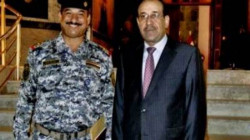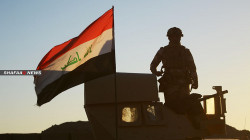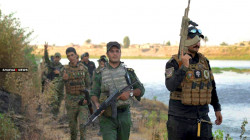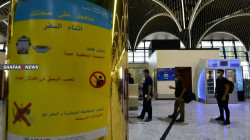From online dance to court's advance: Iraq's content stance

Shafaq News/ A sweeping crackdown on social media is gaining momentum across Iraq, rekindling debate over the balance between freedom of expression and the preservation of traditional values.
Though recent headlines have spotlighted Mosul, the campaign reflects a broader, coordinated push by Iraq’s Ministry of Interior and Judiciary to monitor digital content deemed incompatible with public morality. Since early 2023, authorities have ramped up scrutiny of online platforms, targeting what they describe as “indecent” or “immoral” material.
With more than 30 million internet users and roughly 25 million active social media accounts, Iraq’s digital sphere is vibrant, youthful, and rapidly expanding. According to DataReportal’s 2024 analysis, platforms like TikTok, Instagram, and YouTube have become lifelines for self-expression, humor, and entrepreneurship, especially among the younger generation.
But for authorities, some of this digital expression crosses a red line. Arrests, content removals, and legal proceedings are mounting in what appears to be an escalating effort to reassert control over Iraq’s online public square.
Warrants on the Web
At the core of this campaign is a judiciary-backed drive to clamp down on content deemed offensive to public morals. The Supreme Judicial Council has introduced specialized cybercrime courts, particularly leaning on Article 403 of the Penal Code, which criminalizes the publication or possession of material that violates public decency.
According to the Ministry of Interior, over 1,500 morality-linked cyber cases have been logged since 2023, resulting in more than 200 arrests across the country. Mohammed Zubeidi, who heads the Cybercrime Directorate in Mosul, defended the initiative. “We are acting based on judicial warrants. We are not targeting individuals arbitrarily. Our goal is to protect the moral fabric of society.”
In Mosul, the Investigation Court has vowed to purge “all immoral and inappropriate content” from digital platforms. Similar efforts are active in Baghdad and other provinces. Between January and March 2025 alone, cybercrime units recorded over 500 violations, leading to 75 arrests.
Authorities have also turned to advanced surveillance tools and partnerships with global cybersecurity firms. Since late 2024, they’ve been able to scan more than 50 million social media posts in real-time.
A senior officer in Baghdad’s Cybercrime Unit revealed that, within six months, 200 indecency cases had been investigated, resulting in 50 arrests, most involving individuals under the age of 30. “Our mission is to preserve societal values while guiding the public on responsible digital behaviour,” the officer explained.
Sociologist Laila Al-Bassam of Baghdad University described the campaign as a symptom of generational tension. “The internet brings new freedoms, especially for youth. But for older generations, there’s a sense of cultural loss. While technology matters, cultural integrity must be preserved.”
Meanwhile, Iraq’s long-delayed cybercrime bill, intended to codify online conduct, remains stalled in Parliament amid fierce resistance from civil society groups and international watchdogs. Critics warn the bill’s vague language opens the door to censorship and authoritarian overreach.
Comedy Turns to Controversy
In Mosul, the crackdown has been particularly visible. Since late February, authorities have arrested more than 35 influencers, many of whom shared comedic videos, and dance clips, or wore outfits deemed inappropriate.
For some, the arrests reflect a justified defense of cultural identity. Others see them as excessive and legally questionable.
Sheikh Mohammed al-Shammaa, Imam at Mosul’s Prophet Yunus Mosque, welcomed the campaign. “Our city is being flooded with shallow and toxic ideas,” he warned, urging authorities to also monitor night cafés, which he believes foster behavior corrosive to social values.
Journalist Abdulrahman al-Ta’i, also based in Mosul, saw merit in the campaign’s goals but cautioned against its methods. “We need content creators who uplift, not dilute public values. But arrests should come with transparency and prior warning to avoid unjust punishment.”
The legal ambiguity remains troubling. Mosul-based lawyer Omar Ibrahim highlighted how Article 403 lacks precise definitions. “Many of those arrested are young and from struggling communities. They’re not threats to national security. This law is being stretched to criminalize expression.”
One relative of a detained TikToker shared their frustration, “He made comedy videos—nothing political, nothing hateful. But he was treated like a criminal.”
Organizations such as Human Rights Watch have echoed these concerns, cautioning that the proposed cybercrime law’s expansive wording could stifle satire, dissent, and even journalism.
Freedom vs. Morals
Beneath the surface, a deeper tension emerges. How far should society go in protecting public morals without silencing freedom of expression?”
Iraq’s Constitution, under Article 38, guarantees free speech, as long as it doesn’t violate public order or morality. But critics argue this clause gives the state sweeping powers to define what constitutes morality.
“This is the core of the issue,” noted Ali al-Khafaji, a digital rights advocate in Baghdad. “Morality becomes a catch-all justification for silencing dissent. We need clear standards so constitutional rights aren’t sacrificed to vague moral campaigns.”
But others believe limits are necessary. Judge Hazem al-Kinani, a legal adviser in Basra, countered, “Freedom must come with responsibility. The state can’t allow digital chaos to erode our traditions.”
As of April 2025, over 250 Iraqis have been detained for posting content labeled sexually explicit, politically subversive, or socially offensive.
Rights groups warn that the lack of clear legal thresholds threatens Iraq’s digital culture. Moreover, activists point to a troubling double standard; the crackdown disproportionately targets unaffiliated, economically vulnerable creators, while high-profile political and sectarian influencers often escape scrutiny.
“Many of those arrested haven’t endangered public safety or national unity,” said Mosul-based activist Ahmed Zaidan, who has been tracking these cases. “But we’ve seen political pages openly incite violence or promote war criminals—and no one touches them.”
Zaidan added, “Some flagged content may be crude or tasteless, sure. But this campaign isn’t really about values, it’s about control. It’s about silencing the powerless while empowering political narratives.”
As Iraq edges closer to national elections, many believe the crackdown is also a tool of political calculus, with parties keen to project themselves as guardians of tradition and Islamic identity.
While courts and security forces continue to process digital morality cases in growing numbers, the country stands at a pivotal moment, torn between conserving tradition and embracing modern freedoms.
Can morality be legislated without extinguishing the right to expression? Iraq’s unfolding digital battle shows just how hard that balance is to strike.





